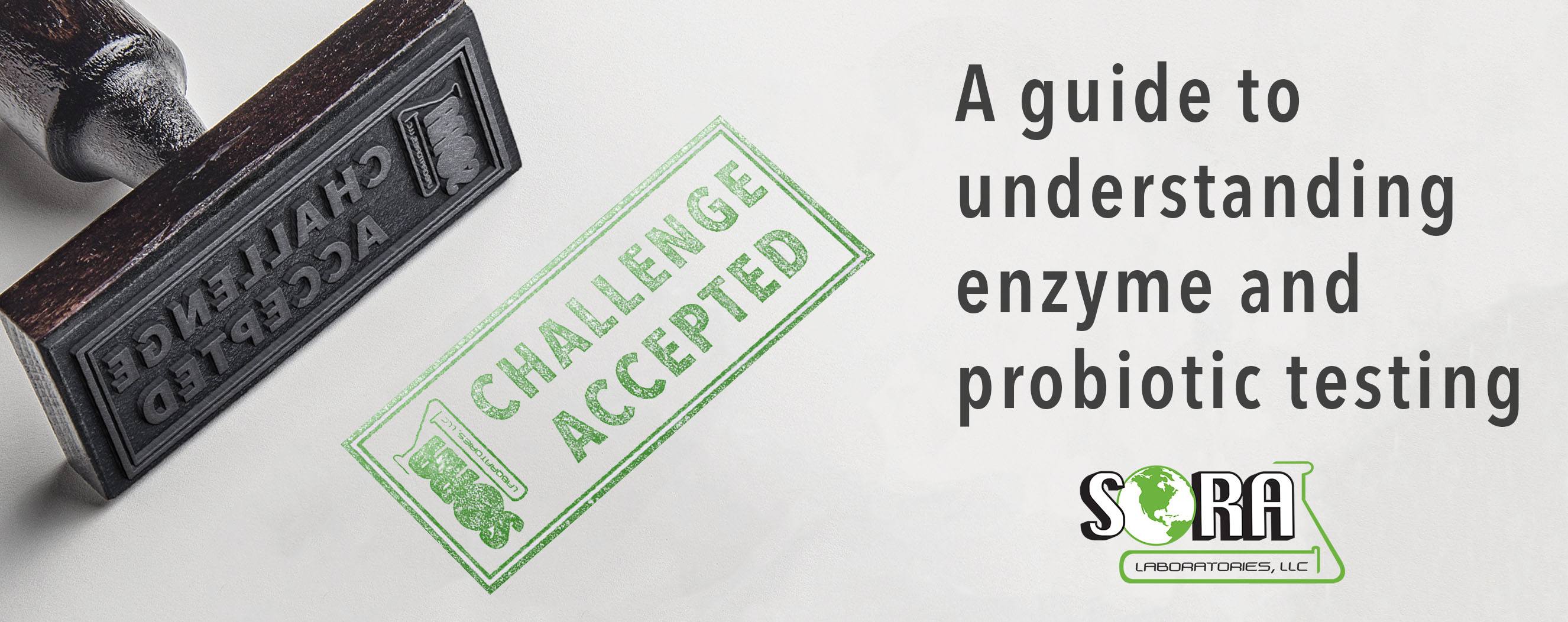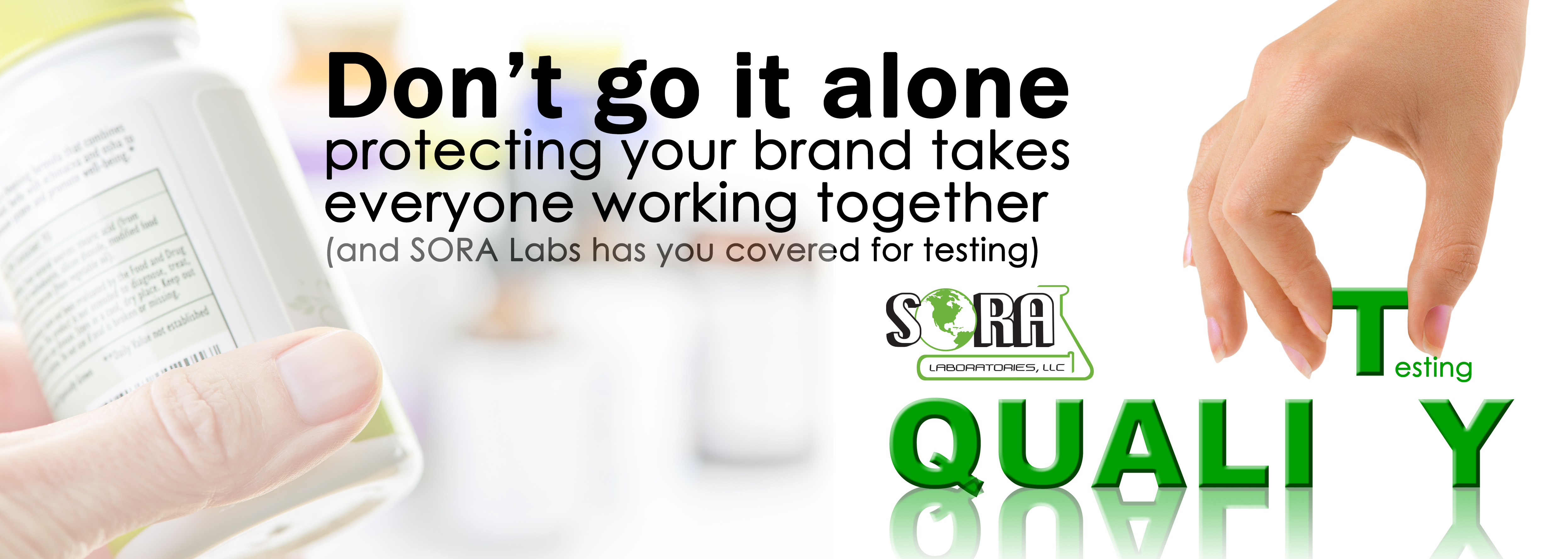For ingredient suppliers, contract manufacturers and brand owners, partnership with a testing lab is often a necessary component. Even with an in-house lab, a company may not be able to perform every test required for their products due to the extensive nature of various testing practices and methods. When complicated, cost prohibitive, or specialty methods are required, partnership with an experienced testing lab, makes perfect sense—enter specialty 3rd party testing labs like SORA Labs.
The FDA Code of Federal Regulations requires that a vendor be qualified, and just like any other vendor, labs should be questioned about the expertise of methods they run. Reviewing proficiency testing; requesting staff qualification and reviewing standard operating procedures (SOP), can provide valuable insight when evaluating a lab. Ultimately, an on-site audit is the best strategy when making a final determination of a lab’s worthiness. Another qualifier when choosing a lab is the ISO 17025:2005 accreditation from the International Organization of Standardization. This signifies that the lab has met stringent criteria and passed audits to be considered a high quality international testing lab.
A lab partnership should also include a Quality Agreement (QA), which defines responsibilities, methods, out-of-specification communication and more. As regulations are increasing, the industry continues to see more findings regarding quality control procedures. An in-place agreement will ensure the quality process has been defined for outsourced testing, and both companies understand each other’s roles and expectations. If a Quality Agreement has not yet been established, you can find our QA form here (Quality Agreement Form Request). Since ISO already requires the highest level of confidentiality, a Non-Disclosure Agreement (NDA) is less important than the Quality Agreement; however some companies choose to have both agreements in place.
Although you may not need outside testing services on a daily basis, it’s a smart idea to have a qualified and experienced lab in your corner when the need arises. Sometimes, it can take a team to get your project completed and partnering with a high-quality testing lab like SORA Labs, is a great place to start. Let us help you today!
Challenge accepted . . . A guide to understanding enzyme and probiotic testing
Similarities between enzyme activity assays and probiotic enumeration are more common than most people realize. Both methods of testing require many dilutions, multiple calculations and are technique-driven. Our lab performs the probiotic colony forming unit (CFU) assays in our microbiology lab, and enzyme activities are tested in our chemistry lab. Both probiotics and enzymes aid in digestion and have potency that cannot be measured by weight or mg. Instead, probiotics are measured by CFUs and enzymes are measured in various activity units, with both having a variety of assay methods available. The ingredient supplier will often have a specific method for their product, and there may also be compendial methods listed in the Food Chemical Codex (FCC). While probiotic suppliers have not started standardizing to the compendial methods as of yet, enzyme ingredient suppliers use the FCC methods to standardize their products, for the most part. As time goes on, the probiotic industry may start standardizing to similar methods like the enzyme industry.
Both probiotic enumeration and enzyme activity assays listed in the FCC, are designed for raw material ingredients. Ideally, these assays should be performed on an ingredient before it is blended with other ingredients or encapsulated as a finished product. When multiple enzymes or probiotic strains are blended together, the testing becomes more difficult. There are common interferences with blended enzymes products, and also challenges with the multiple probiotic blends. Since each blend is unique and will interact in its own way, testing them can be tricky. However, it is possible to have successful results and gain valuable data about your product when tested correctly.
But, just as there are many similarities, there are also differences. Probiotic strains are living organisms, where enzymes are not. Instead, enzymes are ingredients, which break down food, whereas probiotics add to our gut flora for various health benefits. Lastly, enzyme activity is measured by substrate breakdown, instead of plate growth which measures probiotics.
Ultimately, both have complex test methods and require a high level of expertise and years of practice to perform accurately. SORA Labs is your trusted partner for both enzyme and probiotic With developed methods, we can help you learn more about your product through Testing is the only valid method to prove the quality of your product, so choosing an experienced lab is a must. Call us today for a quote!
You can’t go it alone—protecting your brand takes everyone working together!
The quality of the products under your brand is one of the most critical aspects of business success and vendor/supplier qualification is one of the most important steps in that process. In fact, this step is required in the Code of Federal Regulations (CFR) 111.75. Furthermore, to avoid warning letters, build confidence and maintain a positive reputation in the marketplace, safe and tested ingredients are a must.
CFR 111.75 outlines a very detailed process to follow. One of the first steps in establishing the reliability of the supplier’s certificate of analysis (CoA) is through confirmation of the supplier’s test results or examinations. This can be accomplished by setting the specifications and then testing using one or more methods for identity, purity, strength and composition of the component or ingredient. Also required by CFR 111.75 (c)(1), is testing for limits of contamination that would lead to adulteration of the finished product. This testing verifies that the vendor shows identity and acceptable levels of active ingredient markers. It also ensures that there is no microbial contamination, heavy metals, pesticide residue or other harmful contaminates.
Another key to supplier qualification is the supplier audit, which provides valuable information about the quality management system of the supplier. It also shows how the material is tested and how the vendor will ensure specification compliance from batch to batch, along with many other aspects of the company’s processes. By combining testing with supplier audits, a brand can consistently monitor the supplier and build confidence in its ability to produce high-quality ingredients. Once the supplier has been qualified, then reduced testing might be an option.
One FDA response letter (Addressed to Heron Botanicals Inc. on May 25, 2015) prompted the company to defend its position that it makes no claims to the amount of “active ingredients” in its finished product. As such, the company argued that testing was not needed for the “active ingredients” in the raw material. The FDA disagreed with this response because the company lists a 70 percent extract material on its label. Without testing the raw material, the company was unable to prove it started out with a 70 percent extract.
If this company had established a supplier qualification and showed testing results for the raw material over several lots to prove it met label claims repeatedly, then it may have been able to justify not testing the raw material “active ingredient” for this product. In this instance, the documented supplier qualification may have been all that was needed to avoid a warning letter.
Vendor qualification, although an often under-utilized process, is really the key to safe and high-quality ingredients. By testing raw materials and qualifying suppliers, this will strengthen the quality of your products and help protect your brand. Ultimately, It takes everyone working together to ensure the quality of the supply chain—and that definitely should be the main goal of any manufacturer. Are you doing your part to avoid FDA warning letters and produce quality products by working with a quality, certified and accredited testing lab? If not, SORA Labs can be your partner in quality!



